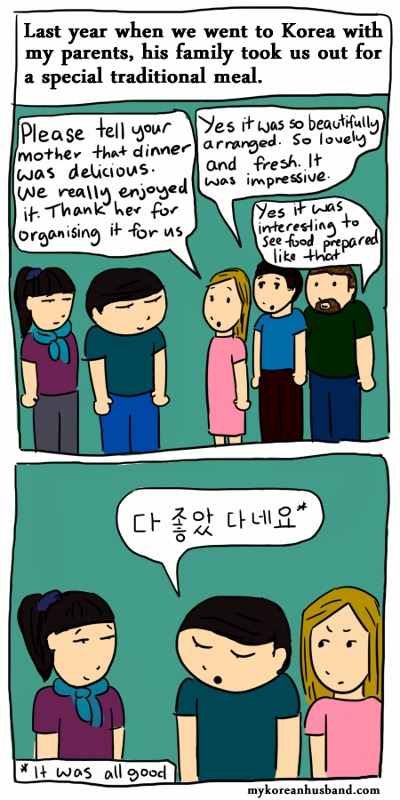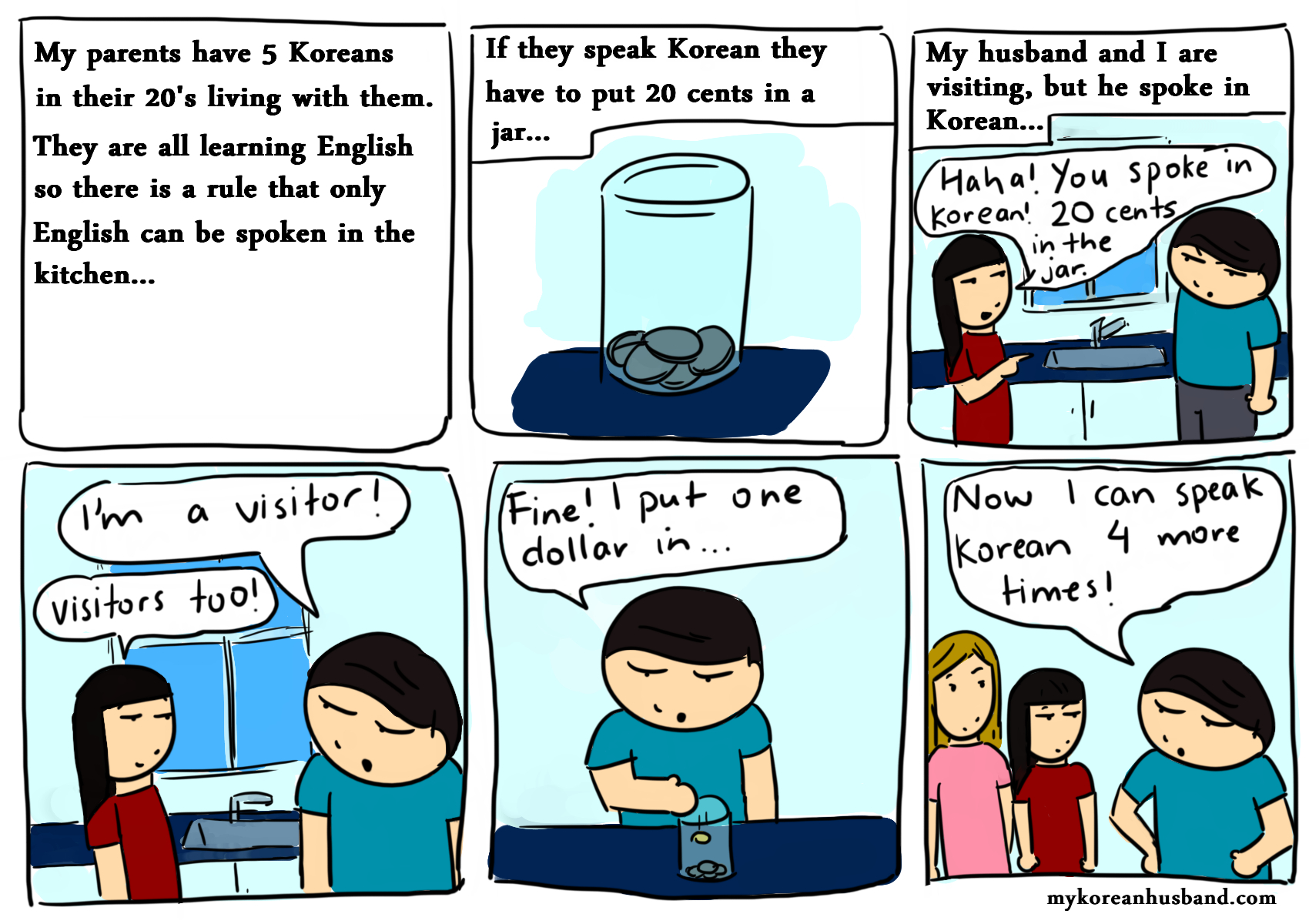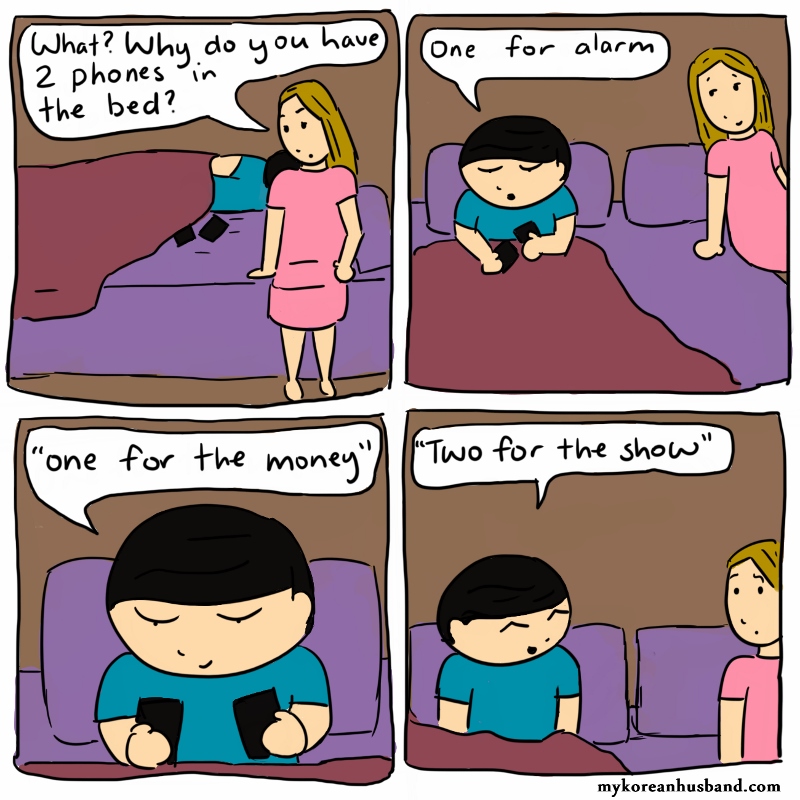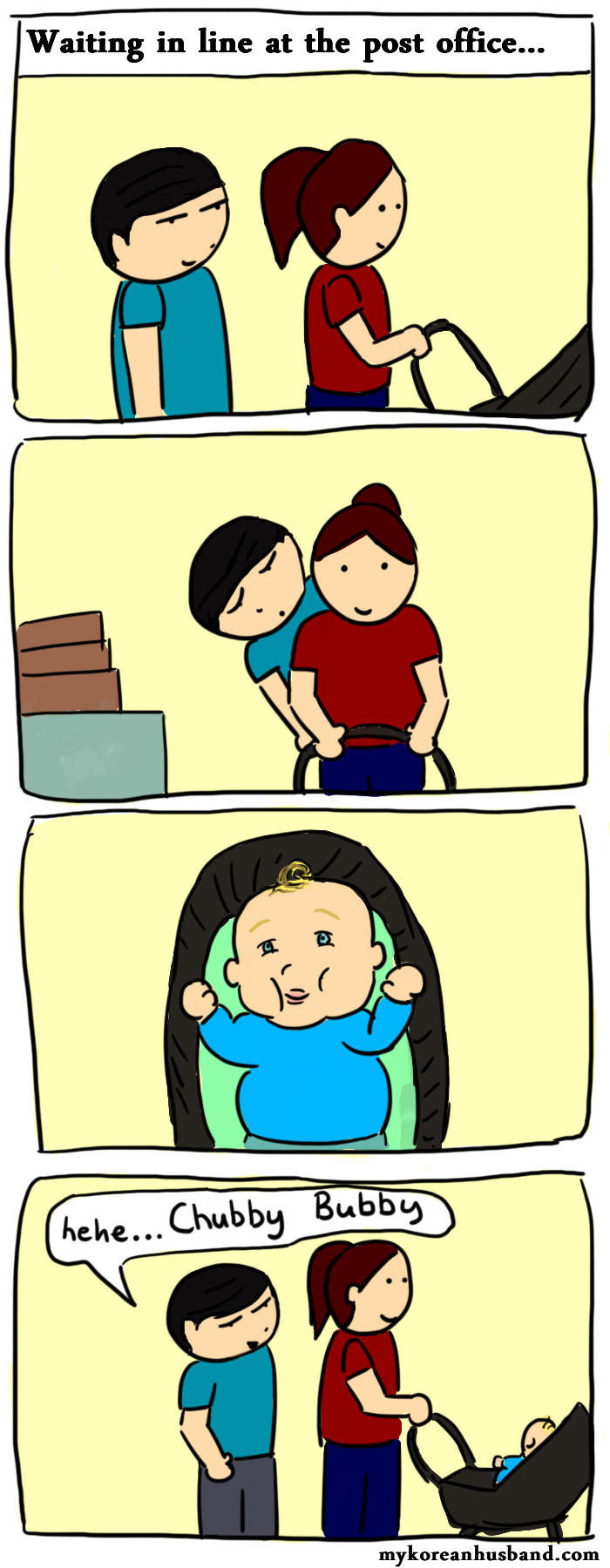
He really hates translating and can be really lazy about it. I know it can be really hard though, and some people are just better at it than others. I have a friend, and though her English is not as good as my husband’s, she is much more natural at translating English and Korean.
This time last year his mother arranged for us to have a traditional meal that was made by monks and all the food they had grown themselves. I knew his mother was anxious to know if we enjoyed it so I wanted her to understand that we really liked it. Unfortunately my husband thought a very simple sentence would do.
My husband will only do it when forced and complains about it. He rarely explains anything about Korean to me and is very much in the habit of just speaking English to me. He learns a lot of English from me though, which is probably because of my personality. I’m a writer and I love reading so I’m always explaining words to him because I genuinely find words, and how they are used, interesting. But he doesn’t really have the motivation to talk about languages, so I miss out in that sense.
When we move to Korea next year I’ll have to work hard on my Korean and make the most of being in Korea.
He isn’t the only guy in my life who hates translating. My youngest brother who is fluent in Japanese will deliberately translate things wrong. For example, when a Japanese friend said to him, “Tell your sister she is pretty,” he turned to me and said in English, “She said you are ugly.” And yesterday I was with him at Darling Harbour and there was a little Japanese boy running around saying things and I asked my brother what he was saying. My brother said, “He said he doesn’t like you.”
See what I mean?!








Recent Comments